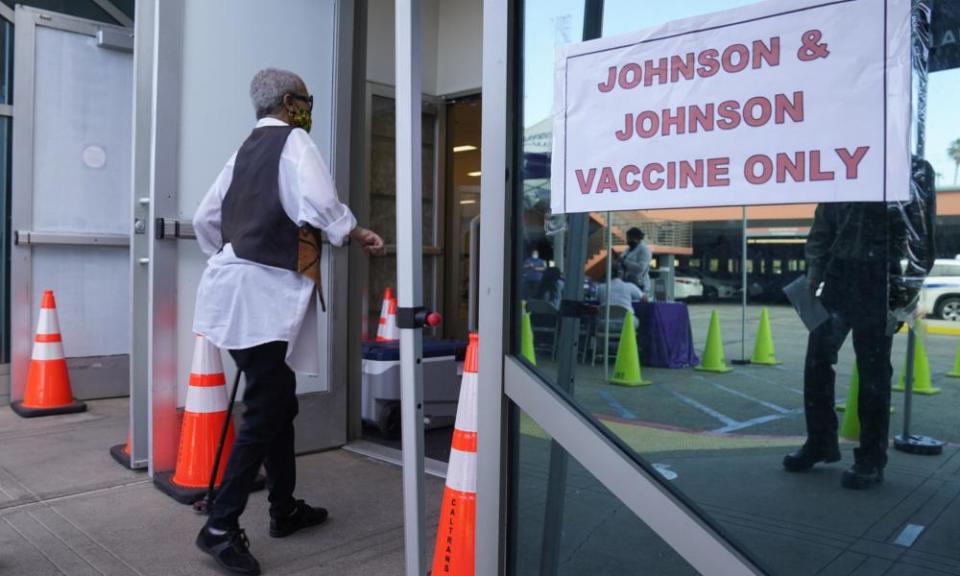EU seeking ‘urgent clarification’ on Johnson & Johnson Covid vaccine delay

The European commission has said it is seeking “urgent clarification” from Johnson & Johnson after the company’s “completely unexpected” announcement that it is delaying the deployment of its coronavirus vaccine across Europe following concerns in the US about a small number of blood clots.
After US health agencies recommended states temporarily halt use of the shot on Tuesday, Johnson & Johnson said in a statement it had been “reviewing these cases with European health authorities” and had “made the decision to proactively delay the rollout of our vaccine in Europe”.
A commission official told Reuters the company had confirmed at a meeting on Friday it aimed to deliver 55m doses to the EU, as contracted, by the end of June. The official said the commission was “in contact with the company” to get clarification.
The EU’s drug regulator, the European Medicines Agency (EMA), which approved the single-shot Johnson & Johnson vaccine last month, confirmed on Tuesday it was reviewing four cases cases of rare blood clots in women who had taken the shot.
The EMA added in a statement to Reuters that it was “currently not clear whether there is a causal association between vaccination” and the conditions. “EMA will further communicate once the evaluation has concluded,” it said.
Johnson & Johnson has committed to delivering at least 200m doses to the bloc this year. The UK has not so far approved the vaccine for use but has 30m doses on order.
default
“This is worrying news – sounds like it may end up the same way as AstraZeneca,” an EU diplomat said. The clotting concerns mirror those of drug agencies in Europe and Australia over the AstraZeneca vaccine, whose use has been restricted in several countries to people aged over 55, 60 or 65.
AstraZeneca also cut vaccine supplies to the bloc to 100m doses by the end of June from the 300m foreseen under its original supply contract, triggering a dispute with the EU that remains unresolved.
The European commissioner in charge of the EU’s vaccination programme, Thierry Breton, said last week the bloc was due to receive 200m doses of the Pfizer/BioNTech vaccine in the next three months, along with 35m from Moderna, 70m from AstraZeneca, 55m from Johnson & Johnson and 10m from CureVac.
The US Centers for Disease Control (CDC) and the Food and Drug Administration (FDA) earlier recommended a pause in the use of the Johnson & Johnson vaccine while investigations take place into six cases involving women who have experienced rare blood clotting events combined with low platelets in the days following vaccination. More than 6.8m doses of the vaccine have been administered in the US.
Several European countries including France, Spain and the Netherlands were taking delivery of their first batches of the Johnson & Johnson shot this week. The Dutch health minister, Hugo de Jonge, said he was not sure what the country would now do.
“I can not say at this moment, it depends on the messaging we get tomorrow, I expect tomorrow, from the EMA,” de Jonge said.
South Africa temporarily suspended the rollout of the Johnson & Johnson shot on Tuesday. Health minister Zweli Mkhize said the country “cannot take the decision by the FDA lightly. Based on their advice, we have determined to voluntarily suspend our rollout until the causal relationship … is sufficiently interrogated.”
Reuters contributed to this report

 Yahoo Finance
Yahoo Finance 